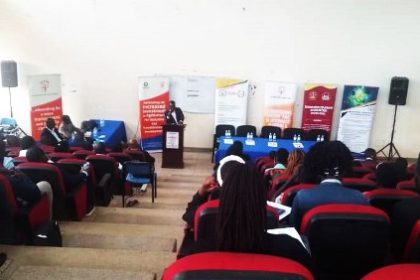Lessons for Uganda as Angola, Nigeria seek World Bank Support
KAMPALA, FEBRUARY 2- The news that Nigeria and Angola were seeking World Bank help to plug funding gaps occasioned by sliding oil revenues underscores the pitfalls of commodity based economies. Be it oil, copper or gold; when the going is good, high value commodities have a tendency of crowding other sectors out of the economy.
The day of reckoning usually comes on the back of a crash in the price of that single commodity on which the economy is hinged and the policy makers are slow or reluctant to take the painful actions that will redirect consumer behavior in the economy.
Until its shenanigans with Khartoum and the December 2013 conflict that sent oil production tumbling, South Sudan was 97 percent dependent on oil revenues for its budget. Recently, that number has notionally improved to around 70 percent not because the economic base had diversified in real term but because oil production had reduced to a trickle.
Nigeria and Angola in that order are Africa’s two biggest oil producers and until the recent plunge in oil price, looked well hedged against future shocks. Before it can open the taps however, the World Bank is demanding its usual pound of flesh in the form of currency devaluations and other structural adjustments to the economy.
If only Nigeria had used the more than a half a century of oil production to shrink the contribution of the oil sector by diversifying its economy, its exposure to the current shock, the situation would be more muted. And if Nigeria’s rulers had over time, opted for the Norwegian approach of creating a sovereign wealth fund through which all oil proceeds are filtered into the economy, its nest would be well feathered.
But like Uganda, Nigeria and Angola encouraged crony capitalism that created individuals who today are more financially secure than their countries.
One can only hope that these developments will be sobering for Uganda which from the average man in the street to its opaque rulers had hinged so much hope for a better future on petrodollars. President Museveni even went into advance consumption, buying half a squadron of Russian jet fighters against future oil revenues.
This obsession with oil wealth betrays our shortsightedness and hunger for low-hanging fruit. On the flipside, one could argue that if hydrocarbons are the fuel of the man-made world, food is the fuel for everything living. It is the most demanded fuel on earth and its demand far more sustainable. For a more secure future therefore, we would be well advised to invest in improving agricultural productivity.
Without intervention, Africa is headed for a Malthusian trap. Every 20-25 years, the continent’s population doubles but total factor productivity in agriculture has been on a steady decline, bottoming out at -0.28 percent by 2005.
So, if food is the fuel of the living world, why are not investing in agricultural productivity? Hopefully, Angola and Nigeria’s catch-22 situation will provide the inspiration that has been absent.

 Africans must resist being bulldozed in energy transition timetable debate
Africans must resist being bulldozed in energy transition timetable debate
 Standard Bank Group appoints new Chief Executive for Uganda Holdings
Standard Bank Group appoints new Chief Executive for Uganda Holdings
 TradeMark Africa introduces new App to limit EAC trade barriers
TradeMark Africa introduces new App to limit EAC trade barriers
 Employer hiring up during November as Stanbic PMI rises to 53.4
Employer hiring up during November as Stanbic PMI rises to 53.4
 Shell Club rewards first winners with brand new motorbikes in Mbale
Shell Club rewards first winners with brand new motorbikes in Mbale
 CSBAG roots for increased funding for renewable energy
CSBAG roots for increased funding for renewable energy
